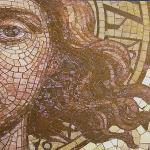Last week, NPR ran a fascinating story about a radio station in Tanzania. Radio Tanzania used to be the only radio station in the entire country and deeply embedded in the national identity. After the nation gained their independence, the radio station became a source of cultural identity for Tanzania:
Radio Tanzania was to be the soundtrack of African socialism under the country’s first president, Julius Nyerere. This was Tanzanian music — not imperialist American, not colonial European. It was music sung by and for Tanzanians, in Swahili
However, in the 1980’s when (thankfully) the somewhat shady one party system of Tanzanian socialism collapsed. This allowed for competition from other radio stations, but it also marked a drift away from the Tanzanian zilipendwa (or “oldies”). Unlike American music, the music that followed the zilipendwa style wasn’t related to it at all. Meaning that this musical idenitity was slowly being forgotten by all but a few, with western music and Tanzanian hip-hop usurping it’s popularity.
But there are a few trying with all their might to save the recordings that were so precious to the Tanzanian identity.
The station needs to buy the equipment to convert the tapes from analog to digital. One person working at one workstation would take 30 years to dub all those recordings in real time. With the help of Kickstarter, Radio Tanzania is raising money for 10 duplicating workstations. It is a cause Corey says is important to the tapes’ survival.
“It’s the entire musical history of Tanzania in one place,” she says. “These tapes are absolutely unique; they can’t be found anywhere else. It would be a true tragedy for the tapes to be lost. They’re at great risk to fire, heat, humidity and just time.”
Within the Christian worldview, it is imperative that this culture be preserved and understood. As Christians, we are called to be redemptive culture makers. These cultures are important symbols that help us understand what Theologian Richard Lovelace would call “the spiritual realities” that are presented through culture, such as freedom, liberation and creative expression.
It may not be “Christian art” (can something that isn’t a person really be “Christian”, anway?), but it is a culture to be engaged and aided for the glory of God. I sincerely pray that Radio Tanzania’s goals are met.
You can find out how to contribute at the Tanzania Heritage Project here














